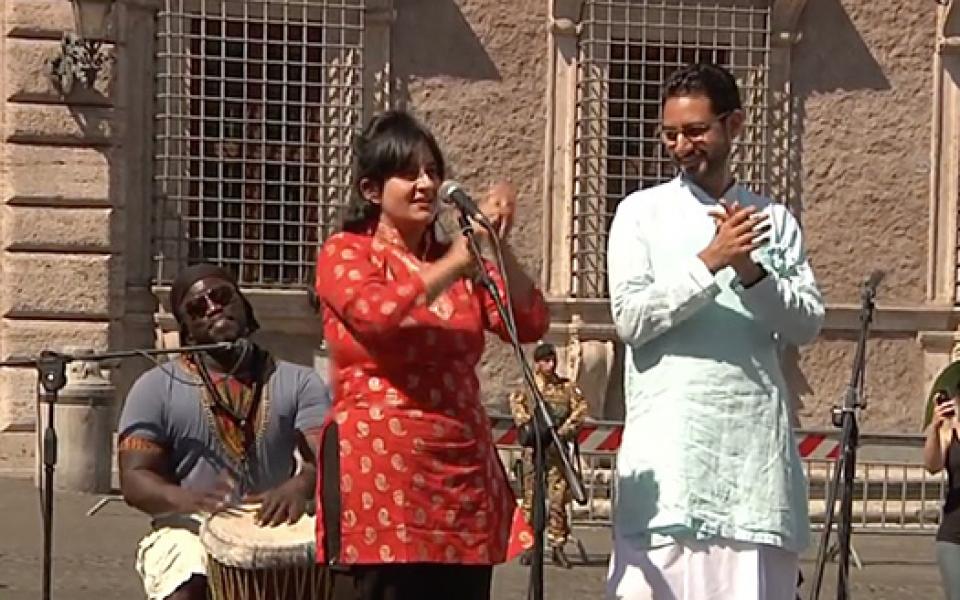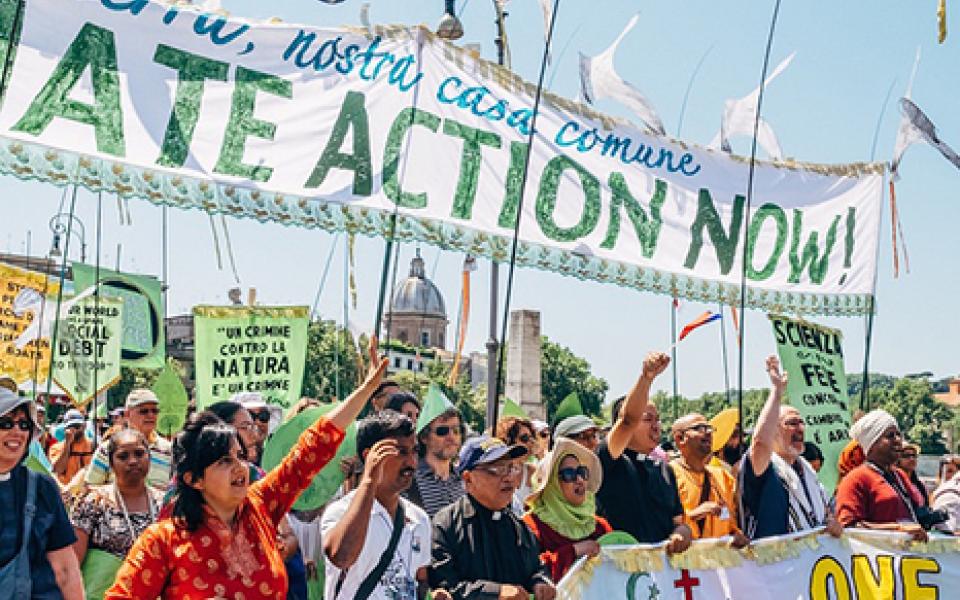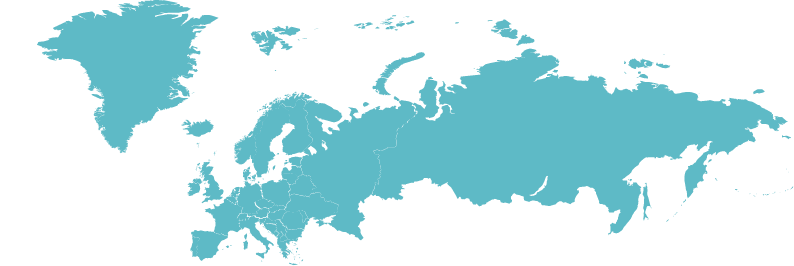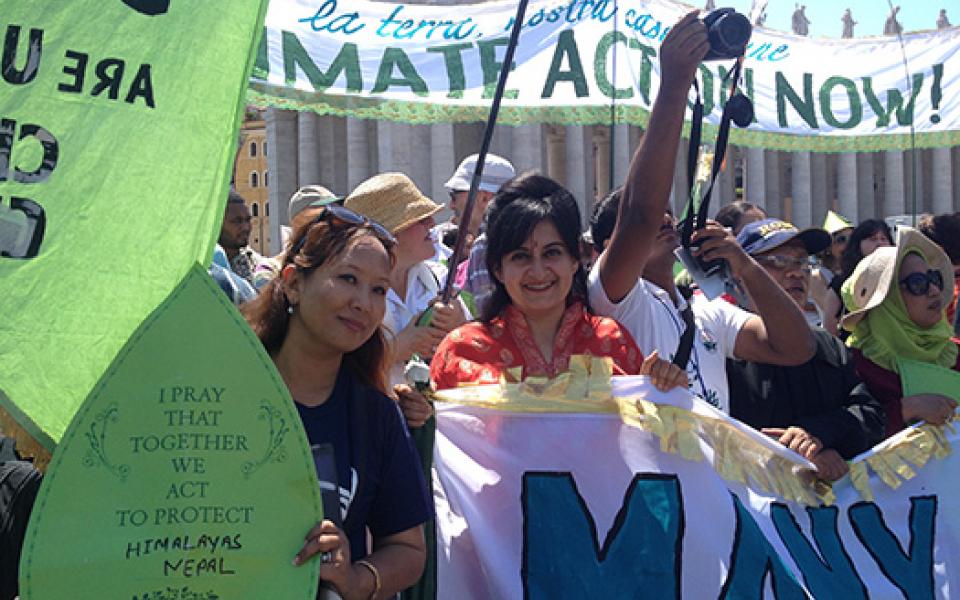
The devastating impact of climate change is not merely a problem for our future. It is a problem in the present day and it is impacting all living beings, regardless of colour, caste or creed. Indeed the whole of the divine creation. However, the human influence is especially powerful in contributing to and tackling this global time bomb of climate destruction that is creating dangerous risks for our global community.
The climate march of the world's religions, in the holy city of Rome at the end of June 2015, has been an powerful interfaith action oriented event dedicated to tackling climate change. Presentations of valuable climate mitigation and adaptation actions proved that these efforts were essential towards ensuring that the impact of climate change remains within a manageable range. What was most powerful, was the incredible march of unity amongst religions to St. Peter's Square to thank Pope Francis for his eco-encyclical and to call for climate action from world leaders. The words of Pope Francis were inspiring as he congratulated and blessed us for supporting the encyclical and standing up for Climate Justice. I was honoured to offer the Hindu opening words for this special march and to lead slogans of justice for the environment.
Supported by evidence-based case studies, it is clear that communities who have been suffering the most are the more vulnerable members of society. Those who are socially, economically, culturally, politically, institutionally, or otherwise marginalised are especially at risk of the dire consequences of climate change such as flooding, increased intensity in storms, sea level rise and drought. These are also the communities who have contributed to the increase in man-made greenhouse gases (GHG's) the least. Close attention needs to be given to the principles of equity and fairness to achieve sustainable development and poverty eradication for all beings.
At an individual level, it has been an opportune moment to reflect on one’s own life and to transcend away from the materialistic culture and the waste that results from it.
What is also crystal clear is that the devotion of religious and spiritual communities towards the environment is paramount. Actively practicing the underpinning values in religions, including Stewardship, Dharma and Justice is the definitive need of the hour. The themes most apparent are that of our collective moral responsibility to act for human rights and social, environmental justice. Global faith leaders coming together in Rome has been an important and historic moment. Now is the time to join hands to create a brighter and more sustainable future through the divine spirit.
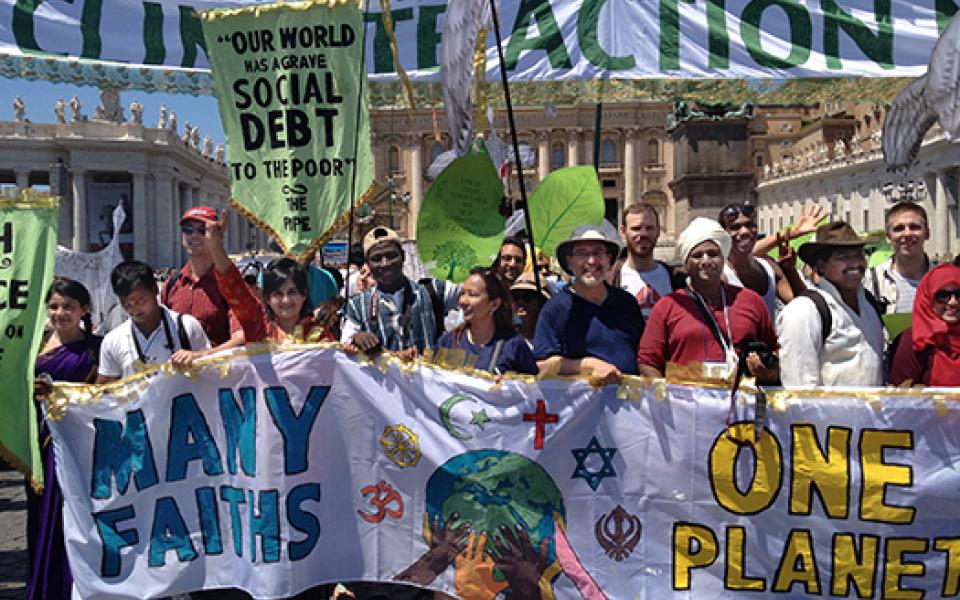
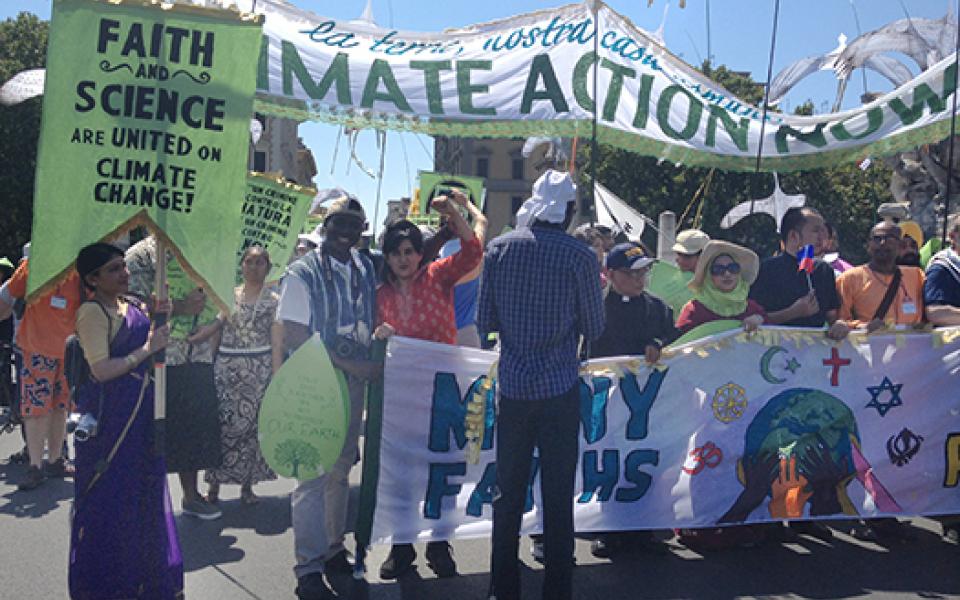
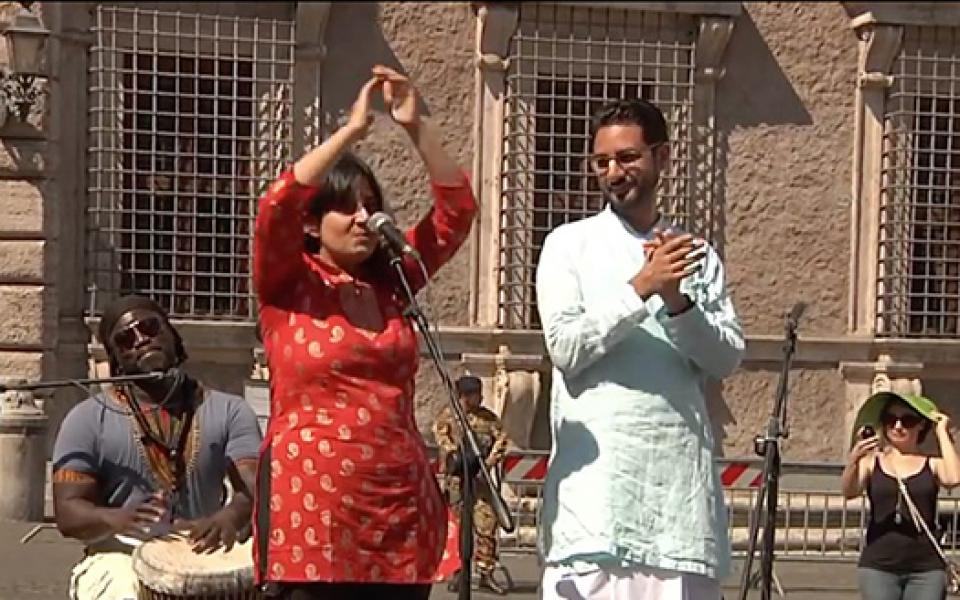
Kiran Bali MBE JP, URI Global Chairperson, leading the chanting for the crowd
